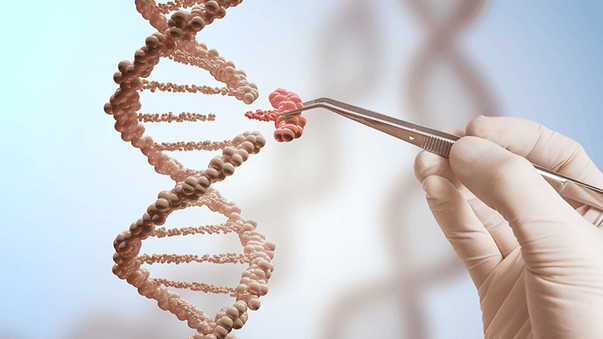Advances in Cancer Immunotherapy and Alzheimer’s

Advances in cancer and Alzheimer’s, which sadly remain a risk especially for senior citizens, are prominently featured in last week’s health science headlines.
A breakthrough development at MIT (see below) is worth zooming in on. The MIT scientists have developed synthetic DNA sequences (a “DNA circuit”) that can be switched on in cancer cells. The DNA circuit is delivered to cells in the affected area of the body using a virus and binds to certain proteins that are active in cancer cells, causing the circuit to turn on and summon the body’s immune system to attack the cells. The scientists plan to test the circuit more fully in a range of cancer models and develop a delivery system for the circuit, which would be both flexible and simple to manufacture and use.
“The design of this highly complex tumor-killing gene circuit was made possible by meticulous optimization and integration of several components that target and program tumor cells to become a specific prey for the immune system - this is very smart technology,” said Martin Fussenegger, a professor of biotechnology and bioengineering at ETH Zurich in Switzerland, who was not involved in the research.
The Food and Drug Administration (FDA) approved a new gene therapy, to be sold by Gilead under the name Yescarta, to treat adults with large B-cell lymphoma. Gilead said the list price for Yescarta, a new Chimeric Antigen Receptor T (CAR-T) cell therapy that is administered just once to each patient, would be $373,000, Reuters reports. Yescarta is the second CAR-T cell therapy to be approved by the FDA. See Pulse 31 for the first (Novartis’ Kymriah), and for comments on the high prices of both.
We all love futuristic high-tech, but low-tech and lifestyle remain important for physical and mental health. A new study found that daily aspirin can reduce the risk of hepatitis B related liver cancer. Another recent study established links between emotions and mental health. This should be obvious, but the obvious needs to be restated now and then: Emotional health influences mental health, and physical health too.
Synthetic DNA circuit recruits immune defenses against cancer cells. Scientists at MIT have developed a synthetic DNA circuit that triggers the body’s immune system to attack cancer, activating a therapeutic response when it detects two specific cancer markers. The gene circuit can be customized to respond to different types of cancer. A study published in Cell details how the gene circuit is based on the simple AND gates used in electronics. Such AND gates will only switch on a circuit when two inputs are present. Once activated, the circuit expresses proteins designed to direct the immune system to target the tumor cells.
New Alzheimer’s drugs could target amyloid-beta. Researchers at Massachusetts General Hospital and UCSD have identified a new class of potential drugs for Alzheimer’s disease and shed light on how the new drugs could work. The research results, published in EBioMedicine, show that treatment with a representative compound of this class of gamma-secretase modulators leads to a reduction of the Alzheimer’s-associated beta-amyloid, and support the hypothesis that excessive accumulation of amyloid-beta - particularly amyloid-beta 42 - is the primary event leading to Alzheimer’s related pathology.
Preventing amyloid beta aggregation could protect from Alzheimer’s. A probe invented at Rice University that lights up when it binds to misfolded amyloid beta, suspected to be among the causes of Alzheimer’s disease, has identified a specific binding site on the protein that could facilitate better drugs to treat Alzheimer’s. A study published in Chem shows that, when the metallic probe is illuminated, it catalyzes oxidation of the protein in a way they believe might keep it from aggregating in the brains of patients. According to the research team, since amyloid beta aggregation is believed to be associated with the onset of Alzheimer’s, this research could guide the production of potent drugs for the treatment of the disease.
Removing “brakes” boosts the immune system to fight cancer. Scientists at the University of Bonn have found ways to boost the immune system response to cancer. A study published in Cell Reports describes how many types of cancer take advantage of natural “brakes” in the immune defense mechanism, such as regulatory T-cells, which normally prevent an excessive immune response, and shows that an immunostimulant called IKKβ can decrease the braking activity of regulatory T-cells, making the body’s natural immune response stronger. According to the scientists, this research could pave the way for more effective cancer therapies.
More Articles
Don't miss a beat! In our Pulse Newsletter, Thrivous curates the most important news on health science and human enhancement, so you can stay informed without wasting time on hype and trivia. It's part of the free Thrivous newsletter. Subscribe now to receive email about human enhancement, nootropics, and geroprotectors, as well as company news and deals.
Read more articles at Thrivous, the human enhancement company. You can browse recent articles in Thrivous Views. See other Pulse Newsletter articles. Or check out an article below.
-
Toward CRISPR 2.0
In two papers published on the same day, October 25, in Science and Nature, two research teams at MIT, Harvard, ...
-
Synthetic Biologists Hack Organic Life
The most interesting items of bioscience news released last week come from synthetic biology, the science of lab-created life. Synthetic ...


